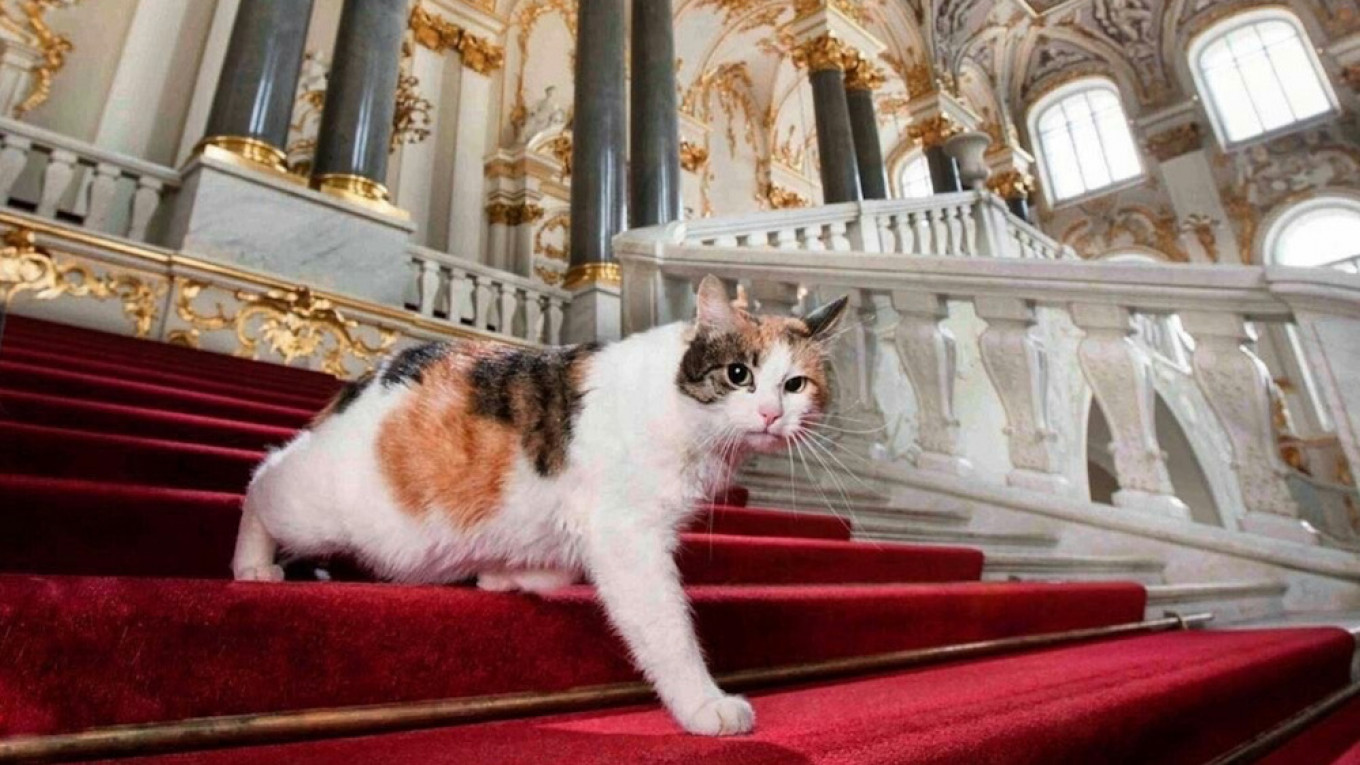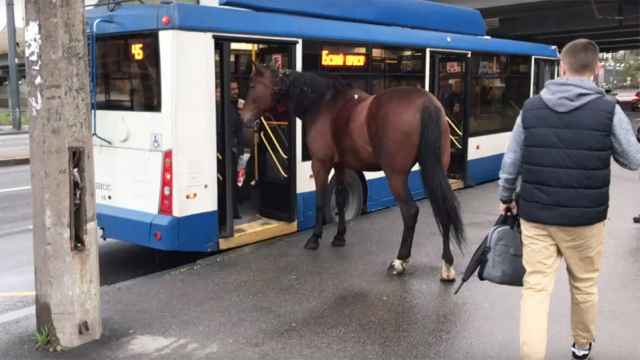The State Hermitage Museum’s art collection might be one of the most impressive in the world — but for some sightseers, it’s the museum’s resident cats who make the visit truly memorable.
Memorable enough, even, to include them in one's will.
The cats made such an impression on French citizen Christoff Botar that he chose to bequeath a part of his fortune to them in his will, the St. Petersburg-based Fontanka.ru news website reported Wednesday, citing museum director Mikhail Piotrovsky.
“The cats have their patrons. Most recently, someone in France endowed a small sum to our cats and we are currently in touch with lawyers about it,” Piotrovsky said during an online conference. “It is indeed very heartwarming.”
At least 50 cats currently reside in the basements of the Hermitage, serving as the museum’s official rat hunters. Despite being essential staff, the cats are solely supported by donations, making Botar’s gift a necessity rather than a luxury.
“The man died and divided his inheritance between his close relatives, a French environmental organization and the Hermitage cats, though [the cats’] part is small in comparison with the first two,” the cats’ press secretary Maria Haltunen confirmed to Fontanka.
The Hermitage was notified of the fortune destined for its dutiful mousers over the summer and is now finalizing its transfer.
Botar’s occupation and his connection to the museum and its fluffy staff remain unclear, though Hermitage representatives believe he was “an ordinary modest man.” It also has not been confirmed if Botar ever visited the Hermitage at all during his lifetime.
Cats have been permanent residents at the Hermitage since the 18th century, when Empress Elizabeth Petrovna commissioned their arrival to fight the palace's mice infestation. After nearly 200 years of comfortable existence, the cats fell victim to the Siege of Leningrad. After World War II, two carriages full of cats arrived in St. Petersburg from elsewhere in the U.S.S.R. and a number of them were brought to live at the museum.
As St. Petersburg authorities are reimposing coronavirus restrictions, the Hermitage has again closed its doors to visitors. While it might be a while until the famed cats can get a fresh dose of admiration from tourists, anyone is welcome to follow Botar’s example in supporting the cats by contacting the museum's development office.
A Message from The Moscow Times:
Dear readers,
We are facing unprecedented challenges. Russia's Prosecutor General's Office has designated The Moscow Times as an "undesirable" organization, criminalizing our work and putting our staff at risk of prosecution. This follows our earlier unjust labeling as a "foreign agent."
These actions are direct attempts to silence independent journalism in Russia. The authorities claim our work "discredits the decisions of the Russian leadership." We see things differently: we strive to provide accurate, unbiased reporting on Russia.
We, the journalists of The Moscow Times, refuse to be silenced. But to continue our work, we need your help.
Your support, no matter how small, makes a world of difference. If you can, please support us monthly starting from just $2. It's quick to set up, and every contribution makes a significant impact.
By supporting The Moscow Times, you're defending open, independent journalism in the face of repression. Thank you for standing with us.
Remind me later.






